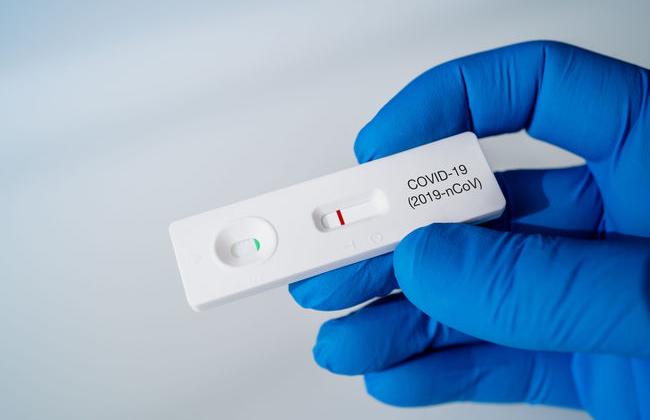SARS-CoV-2 Antigen Tests Suitable for Detecting Omicron Infection
The U.S. Food and Drug Administration (FDA) has reported that initial studies in the U.S. suggest insufficient sensitivity among some of the SARS-CoV-2 antigen tests in detecting the Omicron variant. The Paul-Ehrlich-Institut examined antigen tests offered in Germany as part of its comparative evaluation of the sensitivity of SARS-CoV-2 antigen rapid tests. The vast majority of the 245 antigen tests assessed through 14 December 2021 are capable of detecting the nucleoprotein (N-protein) of the coronavirus, but the Omicron mutations variant primarily affect the S protein. Based on current data, the Paul-Ehrlich-Institut assumes that a substantial majority of antigen tests offered and positively evaluated in Germany can detect an Omicron infection.

The N protein of the SARS-CoV-2 virus is much better conserved than the S protein. According to previous findings, the N protein is significantly less affected by the mutations of the currently known SARS-CoV-2 variants than the S protein. Two of four mutations in the Omicron N protein were also detected in the previously known SARS-CoV-2 variants and had no influence on the reliability of the antigen detection tests. Further investigations, in particular comparative studies with samples from Omicron-infected individuals, are still necessary for a definitive, qualitative and quantitative statement.
On the use of antigen tests
In general, it should be noted that antigen tests (self-tests and rapid antigen tests for professional use) were not developed to diagnose a SARS-CoV-2 infection with certainty. Instead, they were only ment to quickly and easily identify persons with a very high viral load, the associated potential infectivity and the risk of transmission to contacts.
A high viral load develops at the beginning of an infection, with or without symptoms.
Moreover, antigen tests for self-testing, even if they meet the technical requirements for sensitivity, will be only meaningful if the instructions for use are followed exactly. These tests can only detect an infection if there is a high viral load at the time of the test. This also applies to the Omicron variant.
Background information - Comparative evaluation of 245 antigen tests
On behalf of the Federal Ministry of Health (Bundesgesundheitsministerium, BMG), the Testing Laboratory for In Vitro Diagnostics at the Paul-Ehrlich-Institut (PEI-IVD) has been randomly evaluating the sensitivity (susceptibility) of SARS-CoV-2 antigen tests offered in Germany for one year. The basis for the selection of the tests examined at the Paul-Ehrlich-Institut is a list provided by the Federal Institute for Drugs and Medical Devices (Bundesinstitut für Arzneimittel und Medizinprodukte, BfArM). This list details which tests are reimbursable according to the Ordinance on Coronavirus Testing (Coronavirus-Testverordnung, TestV). As of 14 December 2021, 245 antigen tests had been evaluated by the testing laboratory at the Paul-Ehrlich-Institut: 199 tests passed the examination, 46 products failed. Thus, 80 per cent of the tests examined have the required sensitivity as established in the comparative study. The use of antigen tests is an important building block in the fight against the Coronavirus pandemic. By publishing the current evaluation results, the Paul-Ehrlich-Institut is contributing to transparency in regards to the performance of SARS-CoV-2 antigen detection tests.
The Paul-Ehrlich-Institut publishes information on all tests with their respective test result, regardless of whether the assessment was positive or not. The institute informs its sister authority, the BfArM, about tests that failed the evaluation. The BfArM then removes the corresponding tests from its list of reimbursable tests.
The 245 tests also include products that do not bear a CE mark and were originally intended as reimbursable tests for self-testing within the framework of a special approval by the BfArM (self-tests). The testing laboratory at the Paul- Ehrlich-Institut will continue the evaluation of antigen tests.
The Paul-Ehrlich-Institut has provided two tables with information on all assessed SARS-CoV-2 antigen tests. Sensitivity rates to (a) very high, (b) high, and (c) low viral loads as well as (d) the overall sensitivity are reported in comparison with the polymerase chain reaction (PCR), the gold standard among corona tests. Table 1 shows the 199 products that received a positive assessment. Table 2 shows the 46 products that did not meet the sensitivity criterion defined in the evaluation for antigen tests.
Tests are evaluated using a panel of 50 samples covering a viral load range from very high to low. This allowed less sensitive tests to be distinguished from highly sensitive tests. Each product was tested using the components provided by the respective manufacturer (including swabs for sample collection, test-specific buffers) and exactly according to the manufacturer's protocol.
The review of the antigen tests, i.e. their comparative evaluation, is carried out in collaboration with the Robert Koch Institute. Other laboratories involved in this work include the Institute for Microbiology of the German Armed Forces (Institut für Mikrobiologie der Bundeswehr, IMB) and the National Consultant Laboratory for Coronaviruses at the Charité’s Institute of Virology.



